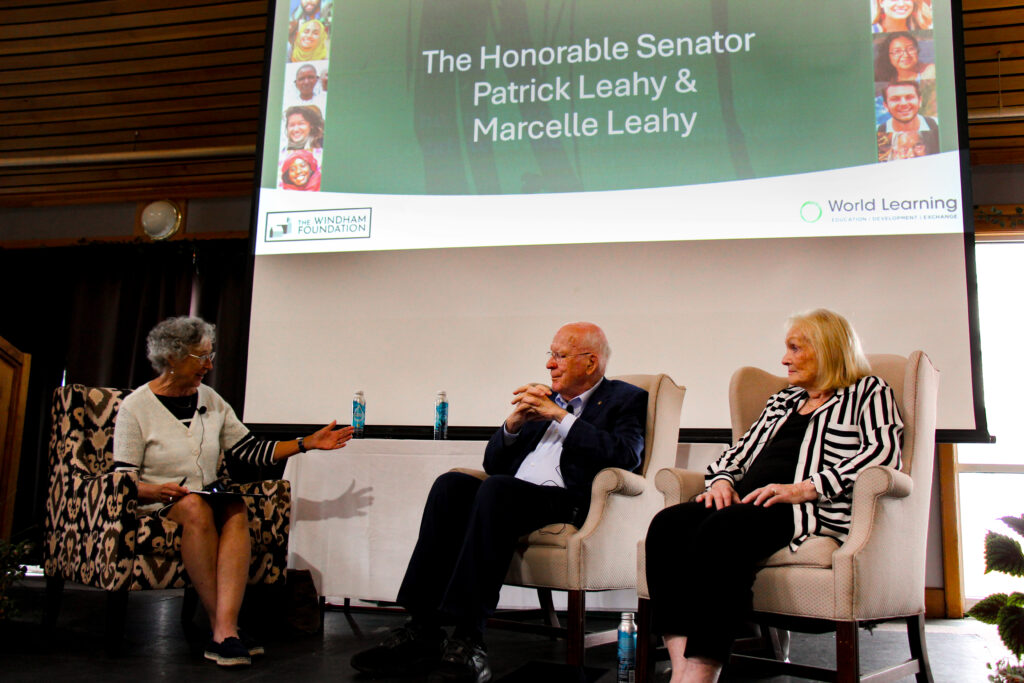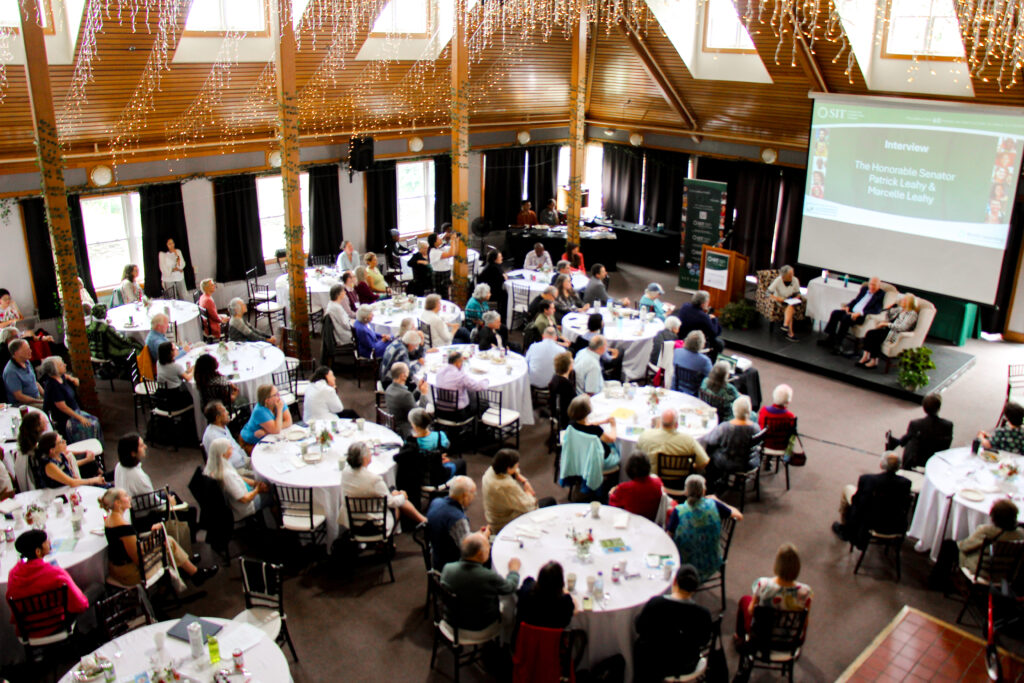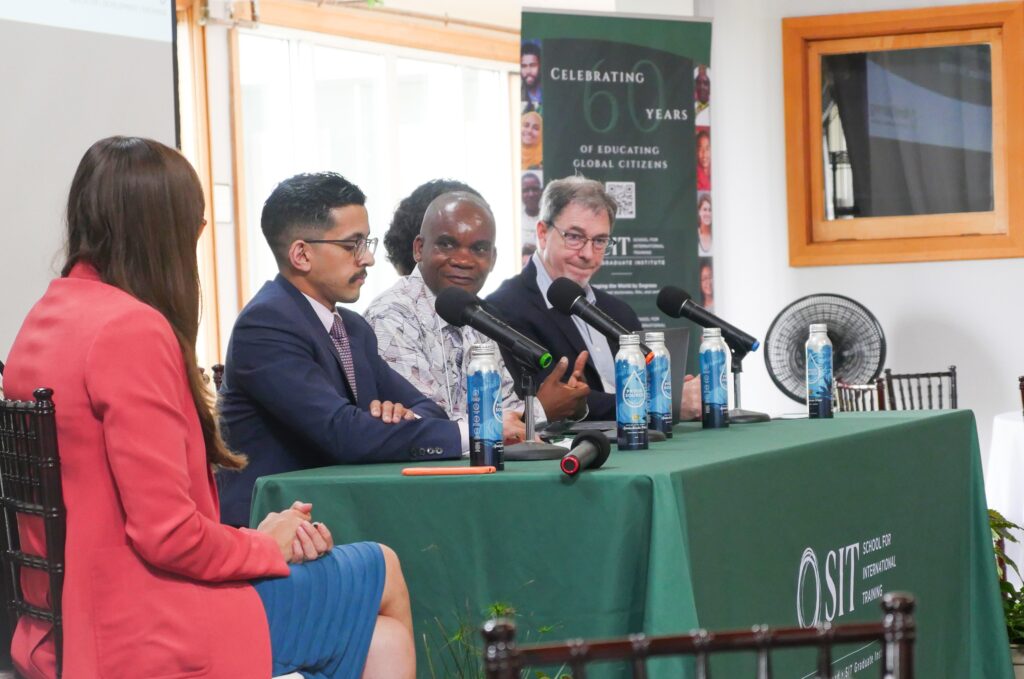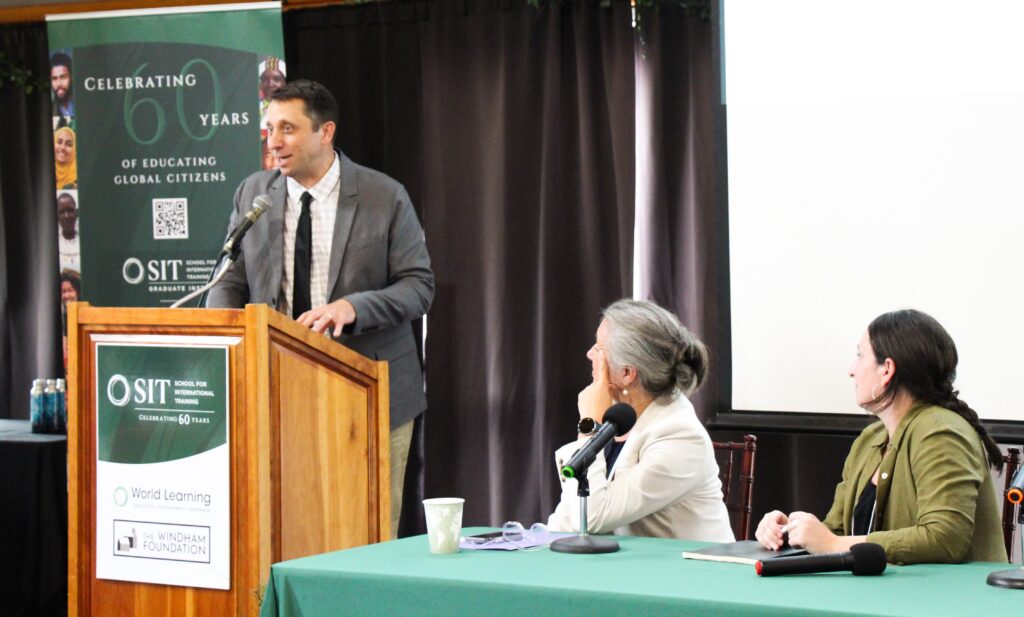Sen. Patrick Leahy was featured guest at SIT conference and commencement
August 12th, 2024 | School for International Training
By Abby Henson
School for International Training hosted a weekend of events on its Vermont campus focused on the importance of international education and SIT’s unique role in fostering local and global change.
At a conference that was part of a yearlong series of events to celebrate SIT’s 60th anniversary, former U.S. Sen. Patrick Leahy and his wife Marcelle shared about their decades-long experiences and the senator’s vision for Vermont’s future. The conference explored the intersection of local and global initiatives in Vermont and strategies to expand upon these efforts through global education, increased internationalization, and rural development.

Sen. Leahy was also the keynote speaker at SIT’s 58th graduate commencement ceremony, where he received an honorary doctoral degree. Forty-nine students completed their graduate-level programs in nine degree areas, including eight who earned their doctorate in global education.
“I am touched to be part of the first doctoral class of SIT…but today is not about me and what I have done in the world. It is about each of you and what each of you is doing and will do for the world in the coming years. You’re our future; you’re what we believe in,” Leahy said to the graduates on Saturday.
Friday’s conference included two panels of speakers, many of whom are partners with SIT. The speakers discussed what internationalization means in the United States and abroad and the challenges and opportunities for sustainable rural development. The importance of educators working together with local and global partners and policymakers was stressed throughout the day.

“If the U.S. thinks they can only do things alone, then they make a terrible mistake. SIT has been so good to bring in people from around the world and to educate us,” said Leahy. Prior to the conference, he and Marcelle met privately with a group of refugees who are part of World Learning and SIT’s New Vermonter Education Program (NVEP).
Deep listening skills, the ability to observe and not come to conclusions, making sure you’re conferring with the people that have lived experiences, knowledge, skills, and insights that you need—these are all critical elements in rural development in Vermont and across the world.
— Emma Spett, Leahy Institute for Rural Partnerships and Office of Engagement
SIT’s Dr. Bruce Dayton, chair of SIT’s PhD in international relations and MA in diplomacy and international relations, noted that we live in a sovereign state system that can create challenges for tackling global issues like climate change and the increasing number of displaced people around the world. It is challenging to create global governance without global governments, he said. Vermont State Senator Nader Hashim thinks having an international awareness is needed.
“Our leaders in our community here should have the patience and understanding that the political systems [around the world] are different from ours and that there’s a steep learning curve,” Hashim said.

Bibimba Mufaume is a new Vermonter from the Democratic Republic of Congo and lived on SIT’s campus as part of NVEP. For him, internationalization means cross-cultural understanding and connecting with someone on an individual level.
“If someone is experiencing atrocities and needs to get out of their country of origin…you find yourself in another country, and you start to share your culture with other people. To me, that is internationalization,” he said.
The idea of connecting individual to individual at a local level was also raised as a best practice for sustainable rural development both in the U.S. and abroad.
“Community engagement works the same all around the world—deep listening skills, the ability to observe and not come to conclusions, making sure you’re conferring with the people that have lived experiences, knowledge, skills, and insights that you need—these are all critical elements in rural development in Vermont and across the world,” said Emma Spett, a project coordinator at the University of Vermont Leahy Institute for Rural Partnerships and Office of Engagement.

“What we heard from Sen. Leahy earlier—things do not happen in a vacuum. SIT teaches that all things come together in a systems approach,” said Dr. Joe Lanning, chair of SIT’s PhD in sustainability and MA in sustainable development practice.
Louise LeGouis attended the conference. She formerly worked for World Learning and as a civil engineer for the National Resources Conservation Service under the U.S. Department of Agriculture.
“Today’s program was really important because it brought together threads of international awareness, local development, and opportunities to come full circle,” LeGouis said.
